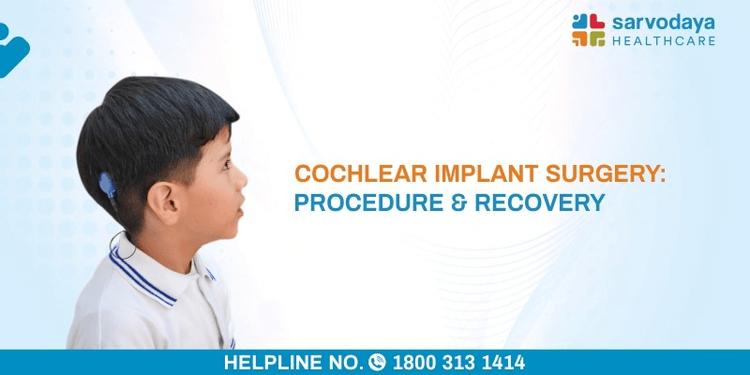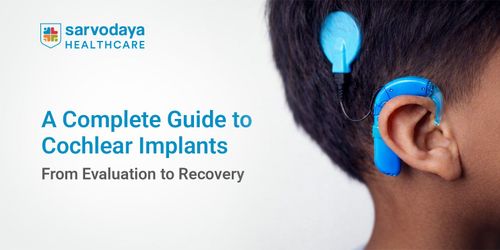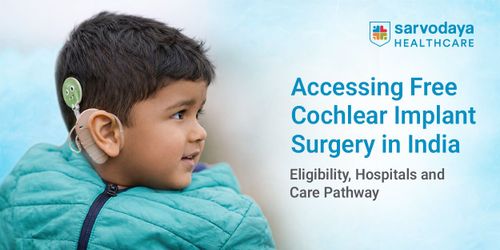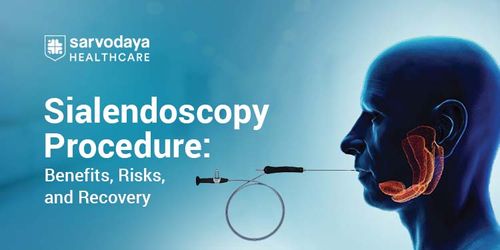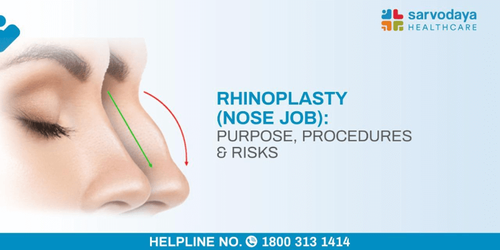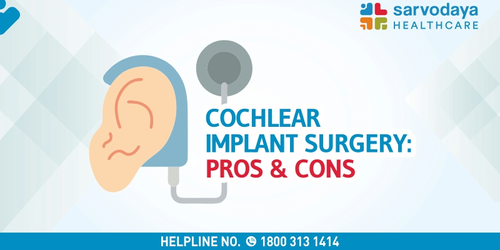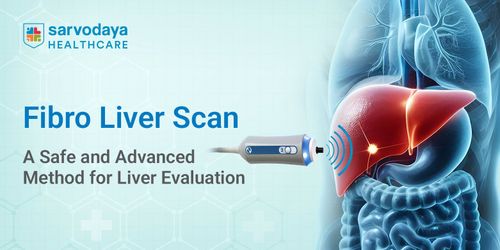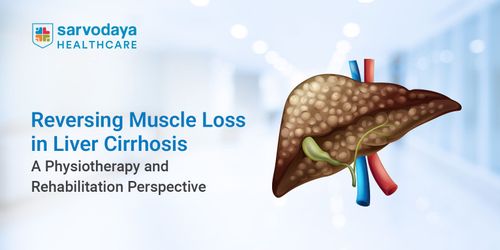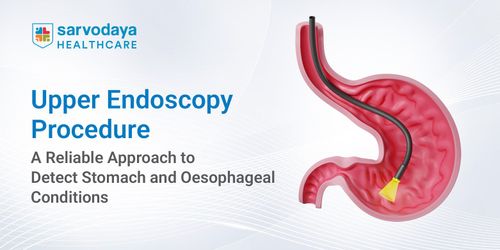A Cochlear Implant Surgery is performed to restore the hearing power in people with no hearing ability. A cochlear implant is a small electronic device implanted to stimulate the cochlear nerve, which is responsible for our hearing capability. The implant has two parts, one external and one internal. The external part is kept behind the ear and the internal part is implanted under the skin through a surgery. The internal part is consisting of a thin wire and small electrodes which leads to the cochlear.
The internal part is responsible for accepting sound with a microphone and transmitting it further to the internal part of the cochlear implant. The wire in the internal part then sends those sound signals to the cochlear nerve. The cochlear nerve then sends sound information to the brain producing a hearing sensation.
Cochlear implant surgery does not restore the normal hearing, but it represents sounds in a much clearer way to a person with hearing loss. With appropriate therapy and practice, the patient can experience improved hearing of surrounding sounds and can carry better communication through easier lip-reading & listening.
A cochlear implant is very different from a hearing aid as hearing aids just makes sounds louder but a cochlear implant significantly improves speech understanding. It is considered for a person with extreme hearing loss who struggles to understand speech. This implant can help to infants & toddlers with hearing disabilities, to listen & learn how to speak.
Cochlear Implant Procedure:
Cochlear implant surgery is always done in a hospital and it’s a complete in-patient procedure. The surgery usually lasts two to four hours and is always performed using general anaesthesia.
- The ENT specialist will make a cut behind the ear to open the mastoid bone.
- The ear specialist will identify the facial nerves to create an opening between them in order to find access to the cochlear nerve. Then the implant electrodes will be inserted into the cochlear nerve.
- The ear specialist will place an electronic device called ‘receiver’ behind the ear, securing it to the skull.
- Incisions will be closed, and the patients are moved into a ward for close monitoring.
- Usually, patients are discharged after 2-3 days of the surgery but m ay take longer as well.
While getting discharged from hospital, your ear specialist will give you some instructions about post-operative care. The dressing on the incision needs to be changed at regular intervals. Follow-up appointments will be needed for inspection of the incisions and stitch removal.
Cochlear Implant Recovery:
Usually, people experience a smooth recovery after cochlear implant surgery. If you feel any increased pain, drainage issue or fever then you must consult your healthcare provider at earliest. The initial surgery may take some time to heal before the implant is turned on or activated. Four to six weeks after the cochlear implant surgery, the external parts will be added. As mentioned earlier, the external part consists of a microphone and speech processor. So, this is when the speech processor is activated, which leads to the internal device stimulating the cochlear nerve when the sounds are processed.
The implant also requires some basic care. One may require multiple visits for adjustments of the implant, although the fine-tuning of the device may take months as learning to use the implant is a gradual process. Also, you will need to be in touch with a speech therapist and audiologists.
At Sarvodaya Hospital & Research Centre, Sec-8, Faridabad, we have the best ear specialists of the country to ensure the best ENT care & cochlear implant surgery experience for you. We are also supported by a team of audiologists, speech therapists & trained ENT nurses.


